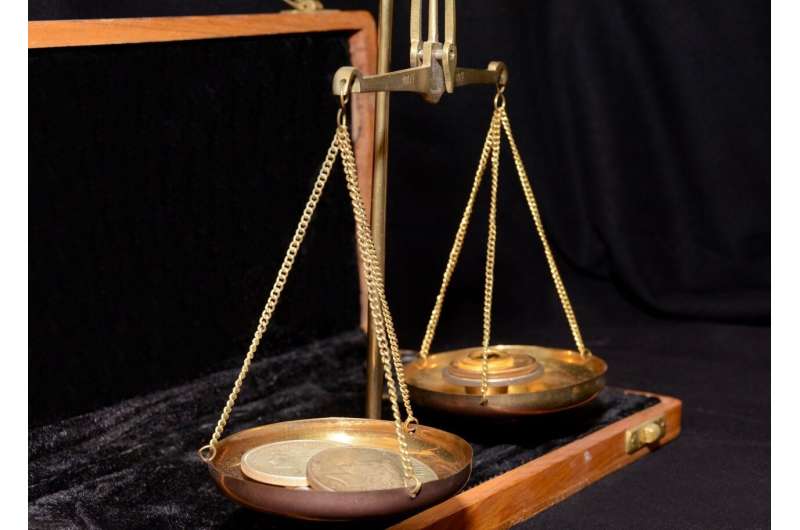This article has been reviewed according to Science X's editorial process and policies. Editors have highlighted the following attributes while ensuring the content's credibility:
fact-checked
trusted source
proofread
Analysis establishes a framework for fairness in accounting, auditing

Nearly 40 years ago, the esteemed accounting professor Yuji Ijiri suggested that fairness is one of the most essential concepts in accounting and asked how to ensure a fair information flow system. In a new analysis, researchers examine whether it is feasible to establish a fair accounting framework in a logically and mathematically rigorous manner and then propose a framework for doing so.
To do so, they looked into the ethical issues related to knowingly misrepresenting information in financial reports, especially when such misrepresentations are expected by those using the reports. The analysis, by researchers at Carnegie Mellon University, is published in Journal of Accounting, Economics and Law: A Convivium.
"Since the 1970s, researchers in accounting, particularly in the United States, have conveniently if not intentionally ignored the importance of Ijiri's question, despite early calls for including fairness as a basic accounting principle," explained Tae Wan Kim, Associate Professor of Business Ethics at Carnegie Mellon University's Tepper School of Business, who led the analysis. "The fairness question was important in 1975 and remains relevant today."
The researchers for this study brought their expertise in accounting, ethical theory, and operations research and collaboratively employed their diverse skill sets in an interdisciplinary approach to address Ijiri's question.
The researchers first applied ethical analysis, in particular, the principle of generalization, to lay a theoretical foundation for fairness in accounting and auditing. The context they used is the ethical dilemmas of financial statement misrepresentation and its widespread expectation among statement users.
To further articulate the problem and the context, they represent the generalization principle in a game theoretic manner, using the signal jamming equilibrium in information economics. Finally, they represented the game from an optimization perspective to further clarify which type of manipulative financial statements can be ethically justified. In short, their work critically examines whether manipulating financial information can ever be justified ethically and how this manipulation impacts ethical judgment in accounting.
The authors close with a discussion of the implications of their proposed framework for research and practice. "Debates between conventionalism and constitutionalism still exist in contemporary accounting research, and without answering Ijiri's question, positively or negatively, the research debates cannot make progress," said Pierre Liang, Professor of Accounting at the Tepper School, who co-authored the analysis
"We believe that now more than ever, the accounting community—including educators, practitioners, and policymakers—will confront the ethical dimensions of their work," added John Hooker, Professor of Operations Research at the Tepper School, who coauthored the analysis.
"In other words, we must answer Ijiri's question, and we have done so by showing that modern tools, such as analytic ethics and game theory, are compatible with addressing these issues to offer new perspectives on the fairness question."
More information: www.degruyter.com/document/doi … 5/ael-2022-0070/html Tae Wan Kim et al, Yuji Ijiri's Fairness Question in Accounting: A Deontological Game Theoretic Approach, Accounting, Economics, and Law: A Convivium (2024). DOI: 10.1515/ael-2022-0070



















